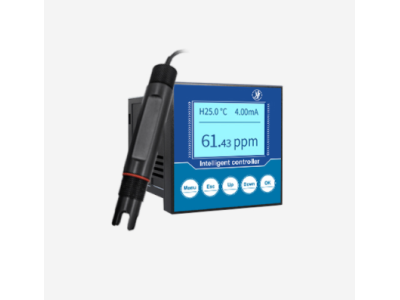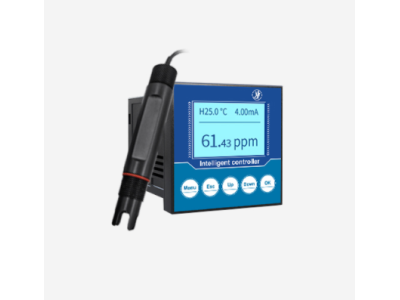Water scarcity is a global issue, and it poses severe challenges to agricultural production. The traditional irrigation systems involve the use of flood irrigation methods that are inefficient, wasteful, and can lead to soil erosion. However, with the advent of advanced technologies, farmers can now enjoy smart water management systems which rely on sensors to detect different parameters in the environment.

Water quality sensors play a vital role in smart water management systems, and they help farmers monitor the quality of water used for irrigation purposes. These sensors are capable of detecting various parameters such as pH, conductivity, dissolved oxygen, temperature, and turbidity, and they provide real-time data on the quality of water being used for irrigation.
There are several advantages of water quality sensors in irrigation systems, including:
Increased efficiency in water usage
Water quality sensors enable farmers to optimize the amount of water used for irrigation. When the quality of water is poor, more water may be required to achieve effective irrigation. With the sensor technology, farmers can adjust the irrigation schedules based on the water quality data obtained, thereby reducing water wastage and conserving this precious resource.
Improved crop quality
Water quality plays a significant role in determining the growth and health of plants. Farmers must ensure that the water used for irrigation is free from contaminants that may harm the crops. Water quality sensors help to detect such contaminants, and farmers can take corrective action such as adjusting their irrigation schedules or adding the necessary nutrients to improve crop growth and quality.
Reduced cost of production
Irrigation is a costly practice, and farmers need to optimize their resources to minimize production costs. By using water quality sensors, farmers can save money by reducing their water consumption while ensuring optimal crop growth. In addition, by detecting issues early on, such as an increase in salinity levels, farmers can address the cause, avoiding costly crop losses.
Enhanced environmental protection
The use of contaminated water for irrigation can have adverse environmental impacts such as soil degradation and the accumulation of toxins in crops. Monitoring the quality of water used for irrigation can prevent such hazards, protect natural resources and prevent pollution of surrounding areas. Additionally, the sensors' real-time feedback enables farmers to respond quickly to potential contaminants by taking corrective action, reducing environmental impact.
Regulatory compliance
Water quality regulations are becoming more stringent to ensure safe and healthy consumption of water. Water Quality sensors ensure farmer’s compliance with local, state, and federal regulations since it enables the early detection of potential contaminations in water bodies. This is critical for farming operations that source their irrigation water from open bodies of water like rivers, lakes or wells.
In conclusion, smart water management systems prove to be a valuable investment for farmers that use data to optimize their agriculture practices. Incorporating water quality sensors into irrigation systems provides farmers with real-time information on various water quality parameters. Using this accurate data, they can manage and improve the efficiency of water usage and quality which results in substantial cost savings while enhancing crop yields and production quality. Ultimately, smart water management systems carry significant environmental benefits, protect natural resources and help comply with regulatory requirements. Investing in this technology is an essential step for any farm looking to optimize their irrigation practices, reduce their costs, and enhance productivity.






